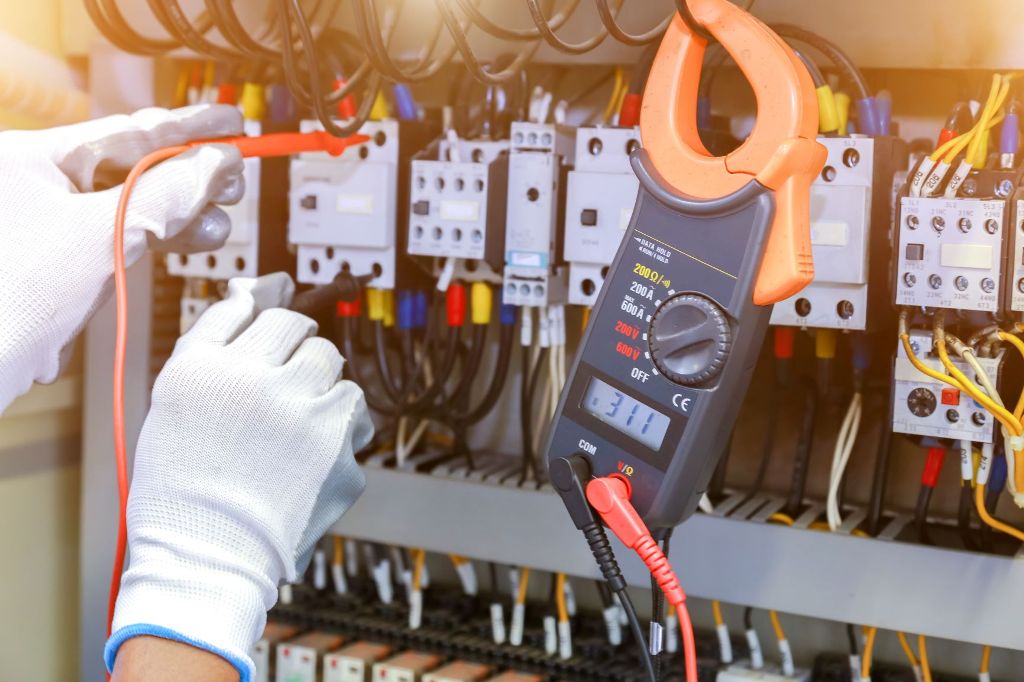Electrical work is something you should not do on your own and play around with, especially if you’re not knowledgeable nor experienced in handling electrical wires and systems. There are many reasons why not, but primarily because of safety, potential significant damage, and inspection issues that lead to hefty fines. It’s a kind of work that’s better left to qualified electricians specializing in inside or outside electrical work, repairs, and installations. When looking for an electrician in Sandy Springs GA, make sure to follow these five tips:
1. Check If An Electrician Is Licensed, Certified, And Insured
You want to make sure you choose an electrician with all the necessary licenses, certifications, and insurance, which will protect you as a customer and guarantee the contractor’s quality of work. Depending on the complexity of work at hand, there are three types of licenses and certifications for an electrician to be able to perform work at your home or real estate:
-
Apprentice Electrician
Apprentice electrician assists an electrician and other staff on less complex installation tasks such as installing conduits, new wiring, lighting, fire alarms, and security systems. He tests equipment, troubleshoots and looks for malfunctions, repairs equipment, and replaces defective parts under supervision.
-
Journeyman Electrician
A journeyman electrician has completed a four-year-long apprenticeship program and has obtained an Electrical Trainee Certification. He is skilled in working with electrical wires, fixtures, and control systems and can safely handle electrical tools and equipment, all unsupervised. He still does not work entirely independently and needs the help of blueprints when working with electrical systems. He works under the direction of a master electrician until he is ready for the next step in his career—becoming a Master electrician himself.
-
Master Electrician
Although master electrician requirements vary from state to state, one must pass an examination and acquire a master electrician license. Having the Master Electrician license means an electrician has the knowledge and competence to install, maintain and repair most intricate electrical systems. A master electrician not only has an excellent understanding of wiring, but he also has a great grasp of safety regulations, building codes, and project management.
2. Ask The Important Questions
There are a few questions that you can ask potential contractors to help set apart the qualified electricians from those whose work can only cost you more money and time in the long run. These include the following:
-
Do I need a permit for this kind of work?
Most small jobs and repairs like outlet replacement or installation of smoke detectors don’t require a permit followed by a state inspector visit. Still, extensive work such as whole-house rewiring or panel changeouts usually does. If the job you plan to undertake requires a permit, your electrical contractor should take care of the acquisition of permit and inspection process.
-
What is the coverage and period of your warranty and who is in charge of any associated repairs?
You can expect most home electrical contractors to give a warranty on their labor and on any fixtures or devices you are to purchase from them. Make sure to keep a copy of warranty terms and conditions for future reference if necessary.
Since most electrical systems are hidden behind walls and ceilings, electricians may need to access them by cutting holes in the drywall. Ask to what extent will the electrician cut holes in the drywall and whether he will repair it or you will need to book a follow-up service by yourself.
-
Will you do an electrical safety inspection as part of the job?
If the electrical work is extensive and involved, an electrical safety inspection is the regular part of the job. However, if unsure, ask. If it’s not part of the job, ask how much of an additional charge would it cost, especially since it may only be a nominal extra charge.
-
Do you do this type of work often?
A fair and honest electrician will be upfront with how much expertise he has and will not take up a job he has no experience doing.
3. Look For Tell Signs Of A Bad Electrician
There is a particular set of qualities to look for in an electrician, and then, there are certain things and character traits you want to avoid. Here are a few tell signs which, if detected, mean you’re dealing with a lousy electrician:
-
No License, Certification, Insurance, And Contract
Probably the biggest red flag is when an electrician does not have any documentation to present as proof or guarantee of professional and satisfactory work he’s trained and licensed to perform.
-
Too High Or Too Low Quotations
Another red flag is an electrician who gives too high or too low quotations without even looking at the situation. A skilled electrician will give you a rough idea of how much he’ll charge you before inspecting the situation. Of course, the cost may change once they look at it, but the ability of the electrician to do cost estimation is also a sign of reliability.
-
Does Not Provide A Lot Of Detail
Many electricians are proud to emphasize why their services are an excellent investment and why they are your best hire for the job. Electricians who do not have experience or qualifications won’t be as quick to flash their previous work and expertise.
-
Unreliable And Cutting Corners
An electrician not showing up for the work or being late, messy, and lacking good communication skills is an electrician to avoid.
4. Create A “Find A Qualified Electrician” To-Do List
If you think the process of finding a qualified electrician is a bit overwhelming, having a checklist and a clear outline of the steps to take may help you relieve the stress and make it a more enjoyable experience:
- Look for references and check reviews
- Get at least three bids
- Check credentials
- Ask questions
- Look for red flags
Finding A Qualified Electrician Made Easy
Most electricians tend to specialize, whether it is in inside or outdoor work, small repairs and upgrades, or significant, complex electrical repairs and installations. Your search for a qualified electrician should start by looking for references among your friends, family, and colleagues; browse online directories to find local professionals near you, and check online reviews for authentic customer feedback. Get at least three bids, gather as much information you can on the issues you are experiencing, and prepare questions to ask possible contractors beforehand. This way, you’ll be sure you have made an informed and balanced decision regarding hiring a qualified electrician who will do the required work to your satisfaction.



















